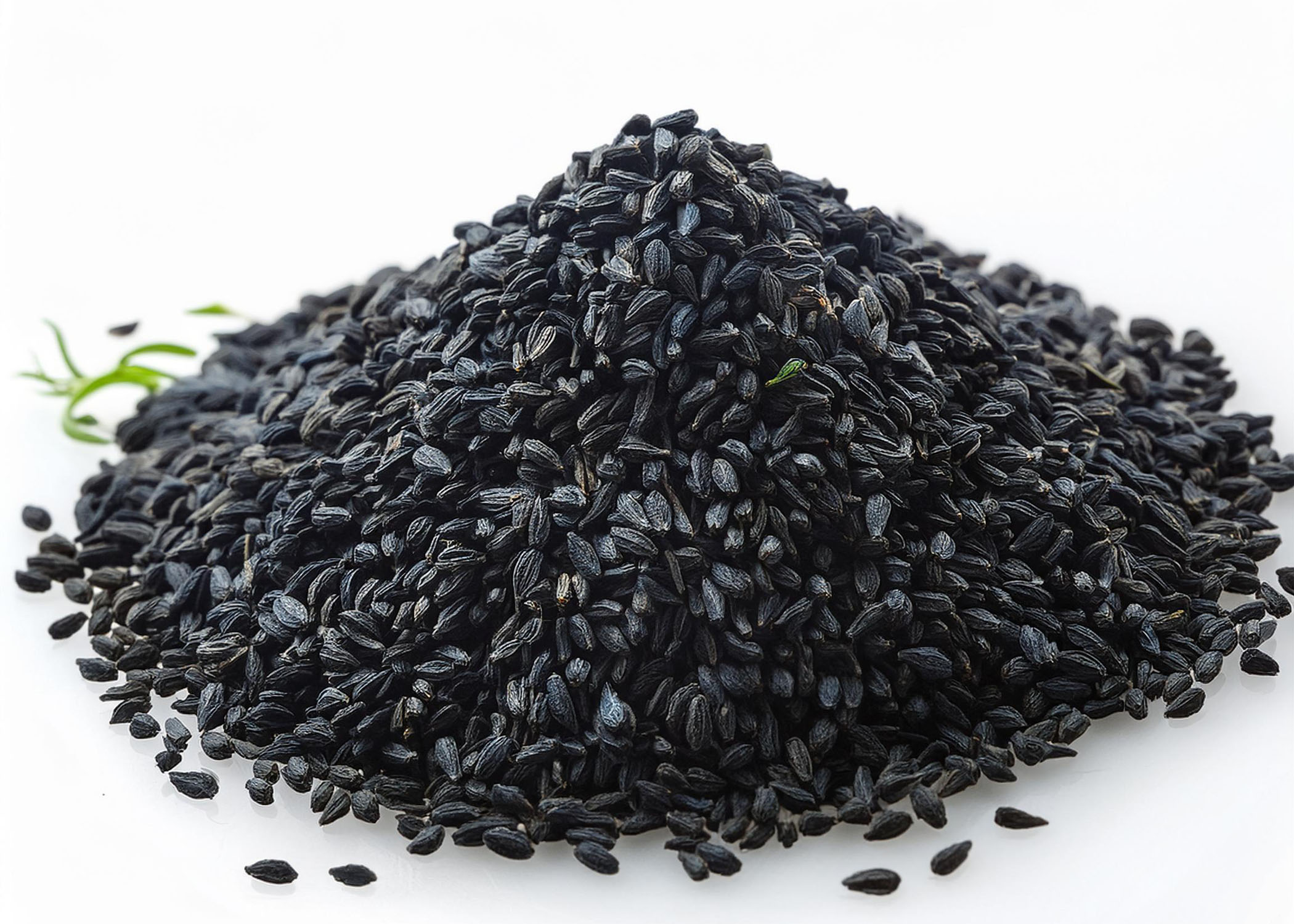Botanical Name: Nigella sativa
Also Called: Black Cumin, Black Caraway, Black Seed
Nigella is a small but powerful spice with a rich history and diverse uses. Native to the Mediterranean region, India, and parts of the Middle East, nigella seeds are tiny, black, and angular in shape, resembling small shards of coal. Despite their diminutive size, they pack a punch in terms of flavor, health benefits, and cultural significance.
Nigella seeds have a unique, complex flavor that is slightly peppery, with hints of onion, cumin, and oregano. Their earthy, nutty taste makes them a versatile ingredient in both savory and sweet dishes. In cooking, they are typically used whole rather than ground, allowing the seeds to add both flavor and texture to a dish.
Nigella seeds are an integral part of Middle Eastern, Indian, and Mediterranean cuisines. They are often found in bread, such as naan, bagels, or Middle Eastern flatbreads, where the seeds are sprinkled on top before baking, lending a slight crunch and a burst of flavor. In Indian cuisine, nigella is one of the five essential spices in the Bengali panch phoron mix, alongside fenugreek, mustard, cumin, and fennel seeds. This mix is used to flavor lentils, vegetables, and even fish curries, providing a distinct, aromatic base.
The seeds are also used to spice pickles, chutneys, and salads, and are sometimes fried in oil to release their oils before being added to curries and vegetable dishes. Nigella can be used as a substitute for black sesame seeds or poppy seeds in various recipes, adding not only visual appeal but also its signature flavor.

